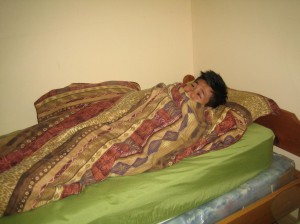In the recent years, there is a high risk of acquiring malaria when travelling to high-risk areas. It is vital to take the proper precautions in order to prevent it. Malaria can be avoided by utilizing the ABCD approach.
- Awareness of risk which involves determining if he/she is at risk for acquiring malaria.
- Bite prevention includes the use of insect repellants, utilizing a mosquito net and covering exposed body parts such as legs and arms.
- Check if malaria prevention tablets are needed. In case required, make sure that the right medications are taken at the right dosage and complete the full course.
- Diagnosis must be confirmed if the signs and symptoms of malaria are present including up to a year after travelling.
Be aware of the risk

When determining whether there is a need to use preemptive malaria treatment when travelling, it is best to consult a doctor or local travel clinic on advice regarding malaria.
For those who grew up in a country where malaria is prevalent, certain precautions must be observed to avoid the infection when travelling to a high-risk area. Remember that no one has full immunity to malaria and any level of natural protection present is rapidly lost when moving out of potential risk areas.
How to prevent mosquito bites
Take note that it is not possible to completely avoid mosquito bites but the less an individual is bitten, the less likely to acquire malaria. There are various ways to prevent mosquito bites such as the following:
- It is recommended to stay in areas with efficient air conditioning and screening on windows and doors. If this is not possible, make sure that windows and doors are properly closed at all times.
- When sleeping in a room without an air-conditioner, use an intact mosquito net that has been treated with an insecticide.
- Apply an insect repellant on the skin and in the sleeping area. Do not forget to re-apply frequently. The highly effective repellants include DEET (diethyltoluamide) and readily available in roll-ons, sprays, creams and sticks.
- Wear loose-fitting, light trousers instead of shorts and wear shirts with long-sleeves. This is vital during early evening and at night when mosquitoes go out to feed.
What are antimalarial tablets?
At the present, there is no vaccine available that provides protection against malaria, thus it is vital to take antimalarial medications to minimize the risk of acquiring malaria.
On the other hand, these medications only reduce the risk of the infection by 90%, thus taking steps to avoid mosquito bites is vital. When taking antimalarial medications, the following must be considered:
- Check if you are given the right antimalarial tablet before travelling
- Always follow the instructions included in the packaging carefully
- Continue to use the tablets for up to 4 weeks (depending on the type given) after returning from the trip to cover the incubation period of the disease
